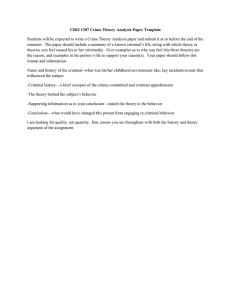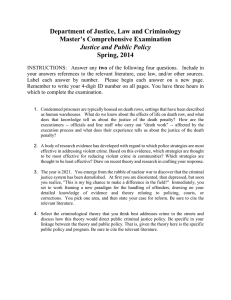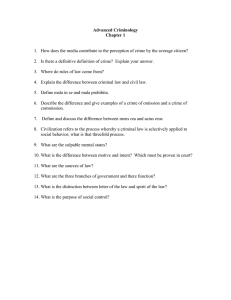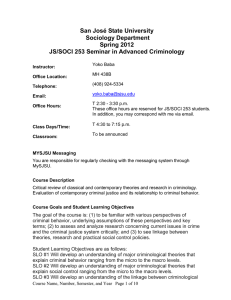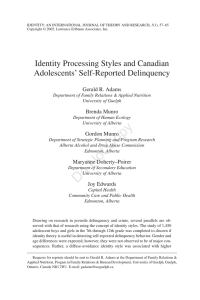CRIMINOLOGY COMPREHENSIVE EXAM – DAY ONE Answer question 1.
advertisement
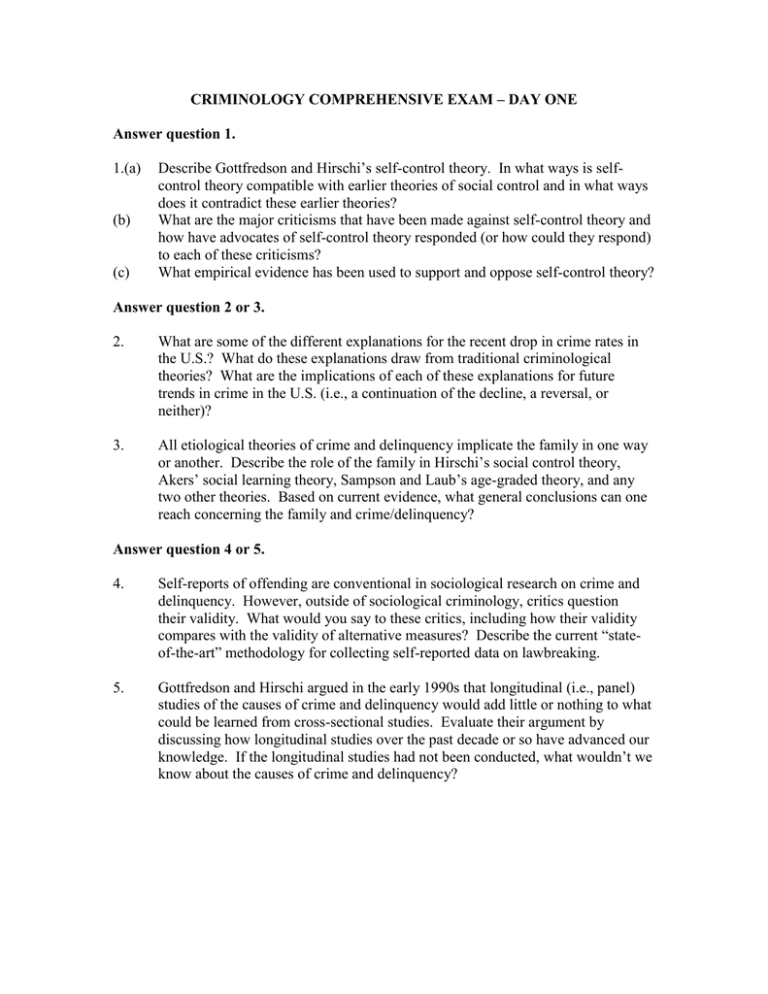
CRIMINOLOGY COMPREHENSIVE EXAM – DAY ONE Answer question 1. 1.(a) (b) (c) Describe Gottfredson and Hirschi’s self-control theory. In what ways is selfcontrol theory compatible with earlier theories of social control and in what ways does it contradict these earlier theories? What are the major criticisms that have been made against self-control theory and how have advocates of self-control theory responded (or how could they respond) to each of these criticisms? What empirical evidence has been used to support and oppose self-control theory? Answer question 2 or 3. 2. What are some of the different explanations for the recent drop in crime rates in the U.S.? What do these explanations draw from traditional criminological theories? What are the implications of each of these explanations for future trends in crime in the U.S. (i.e., a continuation of the decline, a reversal, or neither)? 3. All etiological theories of crime and delinquency implicate the family in one way or another. Describe the role of the family in Hirschi’s social control theory, Akers’ social learning theory, Sampson and Laub’s age-graded theory, and any two other theories. Based on current evidence, what general conclusions can one reach concerning the family and crime/delinquency? Answer question 4 or 5. 4. Self-reports of offending are conventional in sociological research on crime and delinquency. However, outside of sociological criminology, critics question their validity. What would you say to these critics, including how their validity compares with the validity of alternative measures? Describe the current “stateof-the-art” methodology for collecting self-reported data on lawbreaking. 5. Gottfredson and Hirschi argued in the early 1990s that longitudinal (i.e., panel) studies of the causes of crime and delinquency would add little or nothing to what could be learned from cross-sectional studies. Evaluate their argument by discussing how longitudinal studies over the past decade or so have advanced our knowledge. If the longitudinal studies had not been conducted, what wouldn’t we know about the causes of crime and delinquency? CRIMINOLOGY COMPREHENSIVE EXAM – DAY TWO Answer question 1. 1. What is the link between criminological theory/research and criminal justice policy? Why should criminal justice policy makers pay attention to criminological theory and research? What does criminological theory and research tell (or not tell) policy makers about: (a) criminogenic circumstances and correlates; (b) crime prevention; and (c) correctional sanctioning, including both punishment and rehabilitation? Answer question 2 or 3. 2. We know that not everyone who might make use of the courts (e.g., to report an offense, to recover damages from an injury) does so. What factors have social scientists identified that help to explain people’s tendency to utilize the courts to settle a dispute or make a claim? What factors, in your assessment, have not been adequately explored (or explored with the proper measures, data, or research designs)? 3. Disparity and discrimination continue to be concerns about the U.S. criminal justice system. Briefly discuss what is or has been seen as discriminatory or unequal in the administration of criminal justice. What are the concerns about discrimination in law enforcement? What are the concerns about discrimination in the courts? What do we know about the extent of disparity in criminal sentencing in both state and federal courts? Discuss the pros and cons of sentencing guidelines. Is there any evidence that sentencing guidelines have an equalizing effect on criminal justice? Why and why not?
